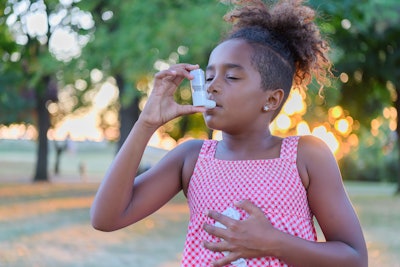
Most people can successfully treat and manage their asthma symptoms with medicine. However, a small group of people experience asthma drug resistance. Exactly why that happens was the basis for the Yale School of Medicine (YSM) study, MUPPITS-2. The study was published in Journal of Allergy and Clinical Immunology.
In particular, the study looked at the effect of the asthma drug mepolizumab on airway eosinophils in childhood asthma. Mepolizumab is a common treatment for reducing elevated eosinophils, which leads to chronic and severe asthma. Researchers examined 290 urban children, collecting and testing the sputum of 53 children from the main trial.
“We know from studying large groups of patients that these medications reduce asthma symptoms and exacerbations, but we’ve also seen in our Yale Center for Asthma and Airway Disease clinic that there is a subset of patients that don’t respond,” said Gabriella Wilson, MD, lead author of the study and YSM graduating fellow.
From the study, researchers gained new insight into why some patients may not respond to the drug. Specifically, researchers discovered that although children treated with mepolizumab had lower overall levels of sputum eosinophils, those with eosinophils exacerbations had elevated levels of two subtypes of sputum eosinophils.
“Gaining understanding about these breakthrough exacerbations — through this study and through future research — will help us be more targeted and precise in selecting treatments for our patients,” Dr. Wilson said.
Dr. Wilson hopes to raise awareness about the significance of eosinophil subtypes in disease activity and drug response.
“With further study, we could potentially use airway eosinophil subtype analysis to determine which medications will and won’t work for individuals with asthma,” she said.























